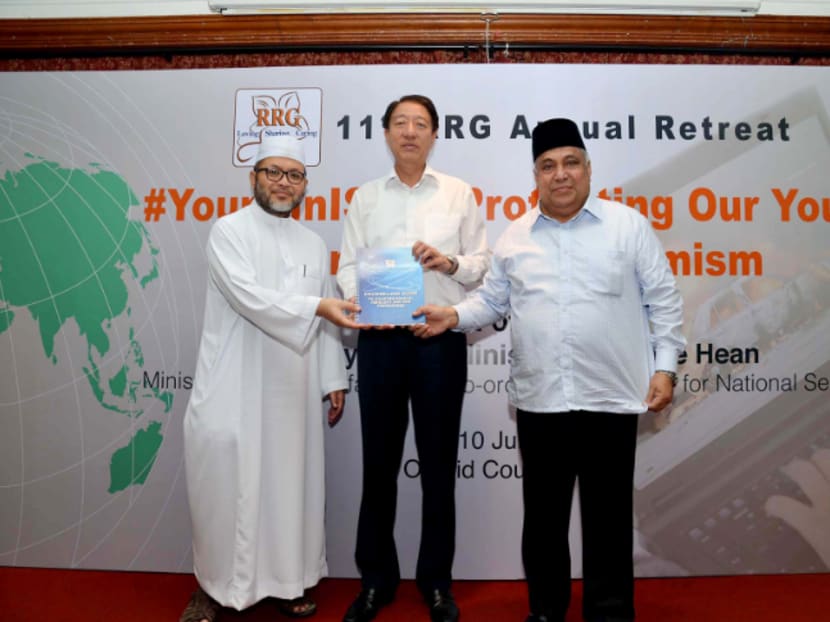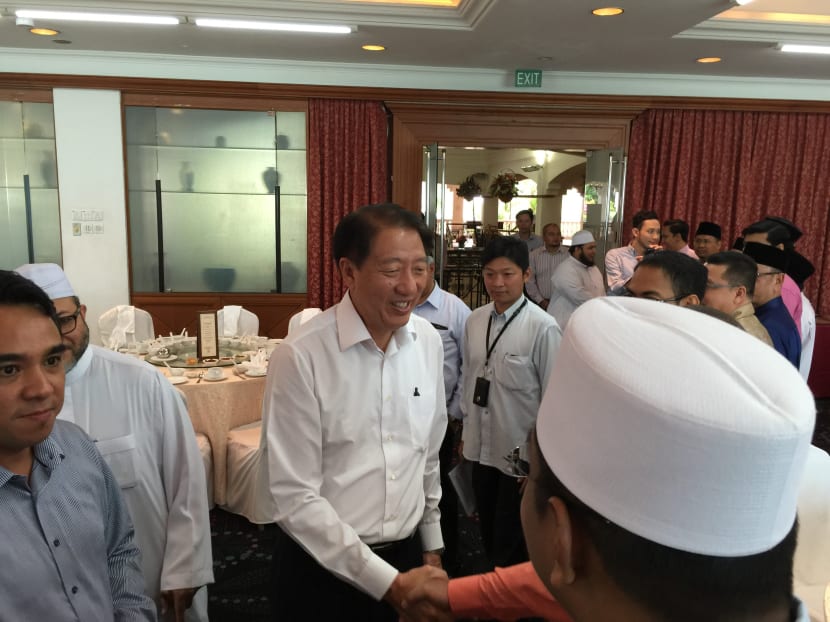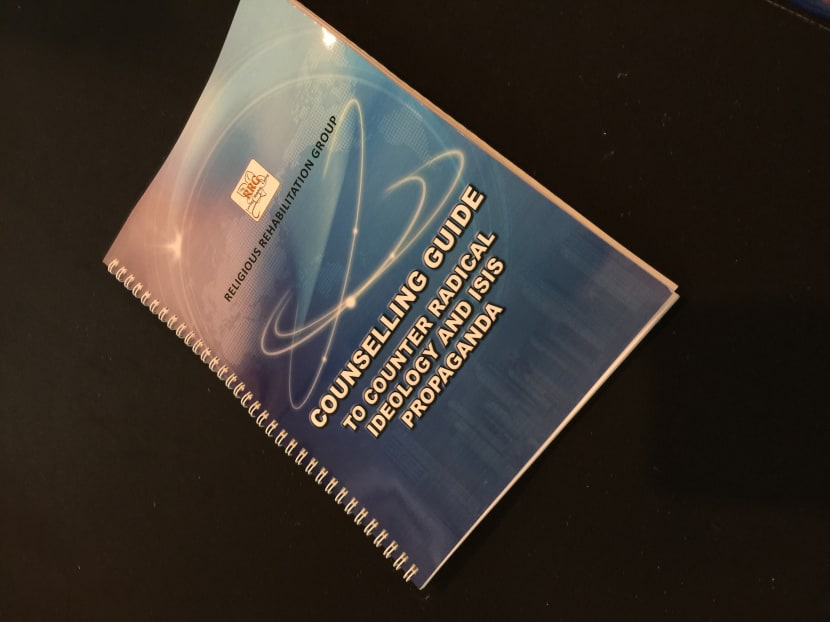Helpline launched to fight threat of self-radicalisation
SINGAPORE — As terrorist group ISIS’ prolific reach becomes more apparent by the day, the Religious Rehabilitation Group (RRG) has come up with three measures to counter the growing threat of self-radicalisation in Singapore, including a new helpline that will be available from early next month.



SINGAPORE — As terrorist group ISIS’ prolific reach becomes more apparent by the day, the Religious Rehabilitation Group (RRG) has come up with three measures to counter the growing threat of self-radicalisation in Singapore, including a new helpline that will be available from early next month.
The helpline (1800-774-7747) is for members of the public who wish to raise the alert on those whom they feel are in danger of being self-radicalised. It is also meant to serve as an easily-accessible legitimate reference point for those who have questions about extremist ideology or are seeking advice on aspects of Islam.
The initiative follows reports last month that a self-radicalised 19-year-old student here had plans to join ISIS in Syria, failing which he plotted attacks to be carried out locally. He was detained under the Internal Security Act in April, while another 17-year-old was arrested last month for further investigations.
In its statement on the detention and arrest then, the Ministry of Home Affairs had highlighted the importance of family members, friends, colleagues and members of the public turning in those they suspect are at threat of radicalisation early.
Speaking on the sidelines of the 11th RRG Retreat today (June 8), where the helpline was announced, RRG member Ustaz Ahmad Saiful Rijal Hassan said the community often does not know where to go for help for such matters. “So this is a platform other than Facebook or a website, where they can just call directly and talk to us,” he said.
On whether the helpline, which will be manned by RRG members, will operate round the clock, RRG vice-chairman Mohamed Ali said it depends on the “availability of our own councillors”, and details are being finalised. RRG has 38 members.
Asked how the group is addressing people’s fear in reporting their loved ones for possible self-radicalisation, Ustaz Ahmad said he thinks the Malay community “is mature enough to know what is right and what is wrong”. On their part they have been promoting co-existence and peace, and they also urge their community to play a part in the national security and national cohesion.
“If you dont report it early, you might be sending them off to the gallows,” he added.
The other counter-measure rolled out by the RRG is short religious talks before weekly Friday Prayers where they can raise awareness on the threat of radicalisation. This started last week.
Meanwhile, a new manual for RRG counsellors on refuting ISIS’ ideology was also launched today. It focuses on the terrorist group’s evolution, its propaganda and ways to debunk their ideology. Topics include challenges for Muslims living in secular environments, the need for critical thinking to evaluate religious sources and debunking the allegation of the Islamic State caliphate, said RRG co-chairman Ustaz Ali Haji Mohamed.
Speaking at the Retreat today, Deputy Prime Minister and Coordinating Minister for National Security Teo Chee Hean said there is an urgent need to deal with the threat posed by ISIS. Security agencies and the community need to work together to develop a counter ideology against the terrorist group’s extremist ideology that is tailored to Singapore’s context so it is more relevant for Muslim Singaporeans, he added.
RRG and community groups also need to reach out to youths through the Internet and social media in interesting, appealing and engaging ways, Mr Teo, who is also Minister for Home Affairs, said in Malay. Just as ISIS has used social media to provide religious justifications for its various actions, Singapore’s responses have to be equally, if not more, dynamic, he said.
Agreeing, Ustaz Ahmad said youths spend a lot of time on the Internet, and “the problem with that is that whatever is (online) are information, not knowledge”.
So, they are encouraging more Muslim youths to attend religious classes by accredited scholars, he added, citing that at least 60 per cent of Muslim youths here are not in any formal religious classes.
Ustaz Ali added that public education efforts are important because youths rely heavily on the Internet for religious guidance but without a strong foundation in religious knowledge, they are unable to discern correct Islamic teachings from those of ISIS.
DPM Teo also said there is a need to go beyond countering radical and distorted ideology, to put forward a positive agenda for all communities to live in harmony.
“We need to work together to protect our young people from this danger of self-radicalisation through the Internet, so that they do not do harm to themselves, their family, the community and to Singapore,” he said.






